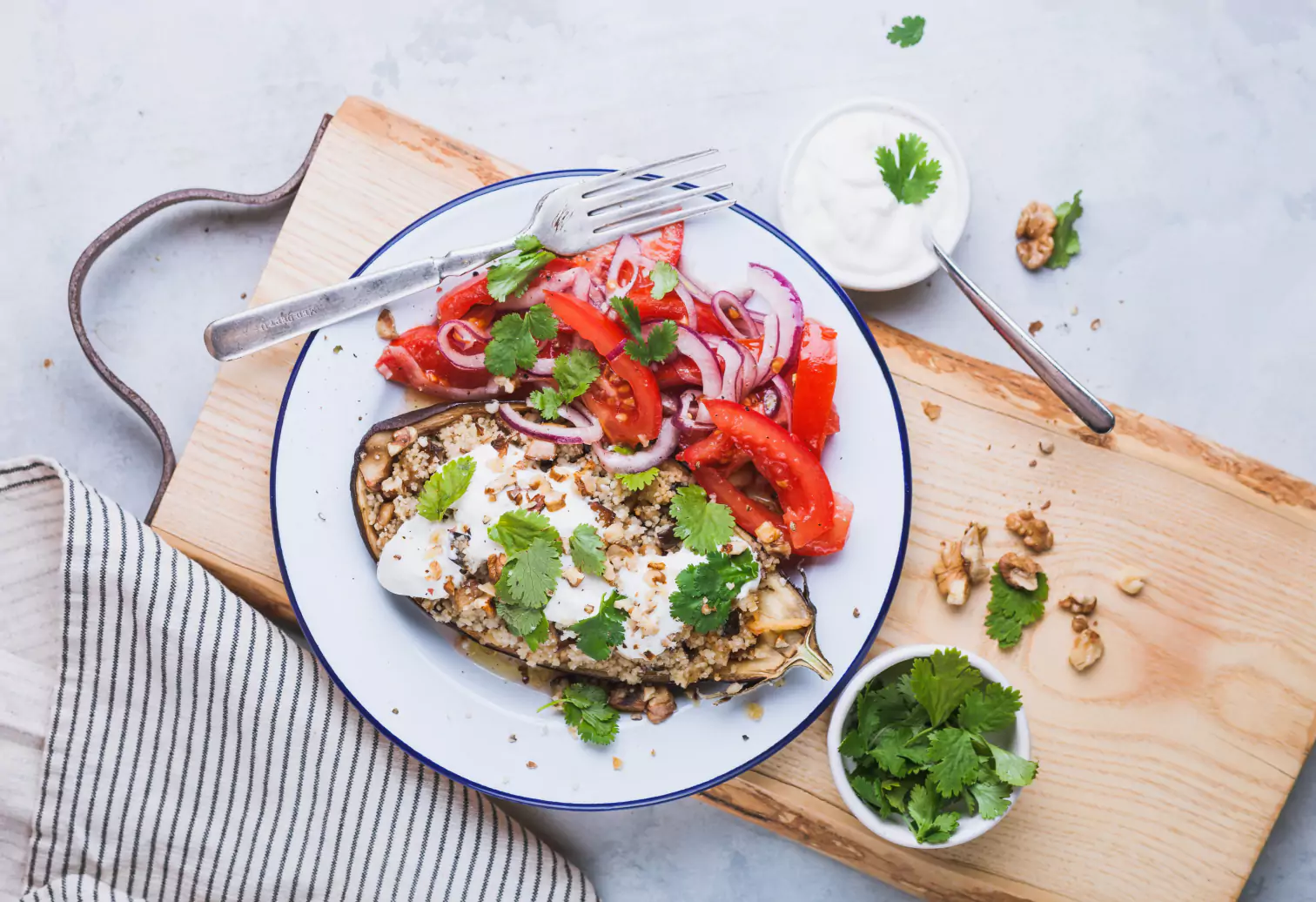Eating for Endurance: A Complete Guide for Athletes

Key Takeaways
If you’re an endurance athlete, you likely already know that your diet is integral to your success. Cyclists, runners, rowers, and swimmers have one thing in common—they all need to fuel their bodies with the right mix of nutrients to help them perform their best.
It includes focusing on things that others usually wouldn’t, like specific ounces of water, grams of protein, amount of electrolytes, etc. Like most endurance athletes, you're likely always looking for ways to give yourself an edge. You may think that means more miles, more challenging workouts, supplements, and sports drinks.
But what if the answer could be as simple as tweaking your diet? Instead of focusing only on energy bars, carb-loading, and sports drinks, could you benefit from focusing more on adding nutrient-dense, whole foods to your diet?
Whether you're training for a marathon or an Ironman triathlon, proper nutrition is key to performing your best. There are many different opinions on the best diet for an endurance athlete, and of course, there’s no one-size-fits-all.
It depends on many factors, from the kind of training sessions and muscle glycogen availability to your body fat composition and individual glucose responses. But there are some basic principles that all endurance athletes can benefit from.
With a bit of planning and some careful food choices, you can make sure you're giving your body everything it needs to excel in your next endurance event. Read on to find out more about eating for endurance.
Essential Foods for Endurance Athletes

Food choices can have a significant impact on your sports performance. Endurance athletes put their bodies through a lot and consider how to nurture their bodies with food.
Eating food that your body doesn’t respond well to can lead to fatigue, unwanted weight gain or weight loss, and other health problems. Conversely, eating foods that your body responds well to can give you energy, help you maintain a healthy weight, and improve overall fitness.
Whenever there’s talk about eating for endurance, the conversation usually turns to how many carbs you should be eating or what type of sports drink or protein shake is best. But when it comes to endurance exercise, nutrition is about so much more than just those two things.
In fact, what you eat can have a big impact on your energy levels, recovery time, and overall training efficiency. This is where using a CGM for fitness and training can come in handy, as you can gain insight into how well you are fueling your body.
Remember that everyone’s body is different, so when it comes to sports nutrition, it’s best to consult a professional before making any changes to your diet. Speak with a trainer or registered dietitian to see what foods and dietary tweaks suit your body.
In the meantime, here’s what you need to know about eating for endurance sports and some of the key food groups you should consider as part of an endurance sports diet:
Healthy Fats

Carbohydrates and protein often take center stage in conversations about eating for endurance athletes, but what about fat? This essential macronutrient is often overlooked, but it's just as important as carbs and protein. There are three types of fats: saturated, unsaturated, and trans fats.
Why is a good amount of fat intake so essential for athletes? It helps with energy and muscle function and is burned as metabolic fuel for your muscles during endurance exercises or training sessions. Not getting enough fat can cause problems like fatigue and poor performance.
So if you're an athlete currently training for your next event, make sure to include some healthy fats in your diet!
Carbohydrates

Carbohydrates are macronutrients that your body uses for energy. They come from a wide variety of foods, including fruits, vegetables, grains, pasta, bread, and dairy products.
Carbohydrates are an essential part of a healthy diet, providing fiber and essential nutrients. There are two main types — complex and simple carbohydrates. Complex carbs take longer to digest and provide sustained energy, while simple carbs provide quick energy but can also cause blood sugar spikes. To get the most benefit, you should aim to include both complex and simple carbs in your diet.
Why is it so important for endurance athletes? They need carbohydrates to fuel their bodies for competition. While some may try to cut carbs out of their diet to lose weight, this can be detrimental to their performance. Carbohydrates are essential for providing the body with energy. They’re especially important for athletes as they help them compete at higher intensities; eliminating them can impair their ability to compete at higher levels.
Carb loading is an integral part of preparing for endurance events and training. But, you have to consider the amount of carb loading you are doing, the amount of exercise you are doing each day, or the duration and intensity of your race or event. You should also consider adjusting your fat intake so as not to exceed caloric intake.
As your time training or competing increases, so should your carb load. The Mayo Clinic suggests averaging five to 12 grams of carbohydrates per kilogram of body weight daily while training and competing in endurance sports.
Protein

Protein is an essential macronutrient that plays a significant role in optimizing health and fitness. Athletes need protein for a variety of reasons. For one, they may engage in more resistance training and utilize more muscle than sedentary people, and so, may need more protein.
Protein helps repair and build muscle tissue, reduces muscle breakdown during extended training sessions, and aids in muscle recovery after strenuous exercise. Without enough protein, athletes can experience fatigue, joint pain, loss of lean body mass, and an increased risk of injury.
But how much protein do endurance athletes need? It depends on several factors, including age, weight, activity level, and training goals. But most experts agree that active people generally require more protein than sedentary folks—somewhere in the range of 1.2 to 1.4 grams per kilogram of body weight per day, and sometimes up to two grams per kilogram for ultra-endurance athletes.
That means a 150-pound person would need approximately 80 to 95, and up to 136 grams of protein daily. Eating enough protein can help athletes recover from grueling workouts, prevent injuries, and improve overall performance. Don’t forget how important it is to add some protein to your meals and snacks—spread them out throughout the day instead of eating them all at once!
As a quick reminder, think of these suggestions as a good starting point. If you’re training for endurance events (or you're a beginner or amateur endurance athlete), work with a coach, doctor, and registered dietitian to truly understand what your body needs.
When Should You Eat?

It really depends on your individual responses to foods and meal timing. So, is there a specific time when athletes should eat? Like most people, you probably think that the best time to eat while endurance training is immediately before or during your event.
However, this isn't necessarily the case. Depending on the length and intensity of your endurance training, you may need to eat differently to fuel your body correctly. Eating before or after a workout can make a big difference in your performance, so knowing which option is best for you is essential.
Like with what foods you add to your diet, is no one-diet-fits-all solution to meal frequency and timing. Each sport, activity, and person will need to work with their coaches and medical professionals to determine the best time to eat.
Timing your nutrient uptake will require methodical planning and patience while you experience trial and error.
Tips For Athletes In Training

What you eat before and during an endurance event is just as important as your training. Eating for endurance means choosing whole foods that will give you sustained energy without making you feel weighed down, fatigued, or bloated. Here are some tips for fueling your body for a successful event:
1) Eat plenty of carbohydrates in the days leading up to your event. Choose whole-grain bread, pasta, fruits, and vegetables over refined or processed foods.
2) Drink plenty of water in the days and hours leading up to and during the race. Dehydration is one of the ultimate enemies for athletes.
3) While you’re training, try to incorporate foods available to you at and around the events you will be competing in so that you know exactly how your body will react to those foods to reduce incidents of GI distress.
Take the Time to Get to Know Your Metabolic Needs

For successful endurance training and overall health and wellness, it's essential to understand your metabolic needs. And this includes finding the foods that suit your body best. Everyone's metabolism is different, so you need to know what works best for you.
Metabolism is the process that our bodies use to create energy, and many things can affect it. By understanding how it works, you can make better choices about your diet and lifestyle that will help you reach your goals. It includes observing your energy levels, hunger pangs, and blood glucose reactions to foods and exercise.
Many athletes work with professional dietitians and doctors or utilize technology to learn about their metabolic needs. If you’re a beginner, use this to your advantage—and consider making the most of health tech too! You may even consider using a CGM for running or other types of exercise to learn more about your nutrition.
Smartwatches, continuous glucose monitors, hydration trackers, and performance analytics can be a game-changer while your body is getting used to your training routine.
Find the right Nutrisense programto turn insight into progress.
Go Beyond Glucose Data with Nutrisense
Your glucose can significantly impact how your body feels and functions. That’s why stable levels are an important factor in supporting overall wellbeing. But viewing glucose isn't enough. Nutrisense, you’ll be able to learn how to use your body's data to make informed lifestyle choices that support healthy living.
One-to-one coaching
Sign up to access insurance-covered video calls to work with a glucose expert: a personal registered dietitian or certified nutritionist who will help tailor your lifestyle and diet to your goals.
Monitor and measure what matters
With the Nutrisense CGM Program, you can monitor your glucose with health tech like glucose biosensors and continuous glucose monitor (CGM)s, and analyze the trends over time with the Nutrisense App. This will help you make the most informed choices about the foods you consume and their impact on your health.
Find your best fit
Ready to take the first step? Start with our quiz to find the right Nutrisense program to help you take control.

Amanda is a Nutrition Manager and Registered Dietitian, with a Masters in Dietetics from Stephen F. Austin State University. Originally from south GA, she got her undergrad degree from Texas Tech University. She worked at a hospital in Fort Worth, TX, for 4 years as a dietitian, counseling those living with HIV.

.webp)


